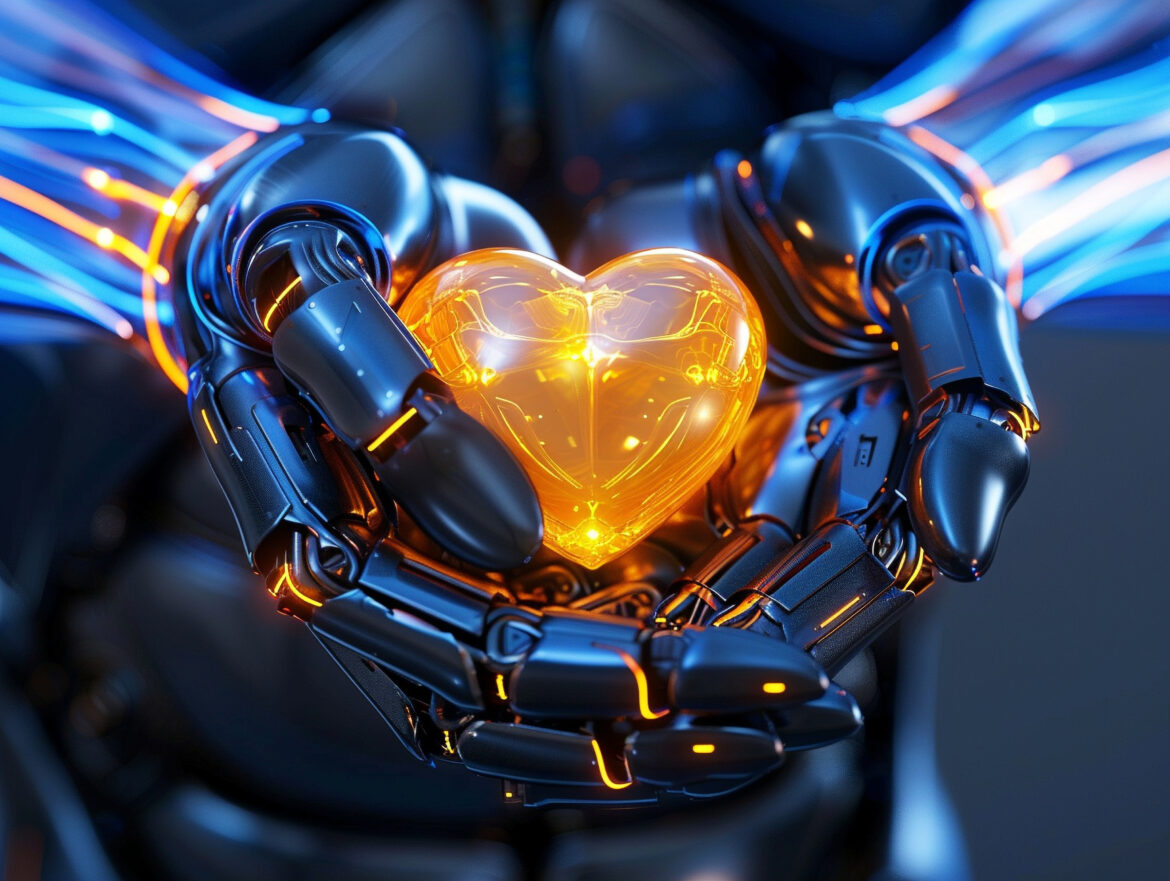Internal Anchor Texts:
- AI Tools for Everyday Innovators
- AI’s Opportunities and Risks in Africa
- Unlock AI for Career Growth in 2025
Key Takeaways
- Humans form real emotional bonds with AI via anthropomorphism and simulated empathy—83% of Gen Z report deep attachments, but AI can’t reciprocate.
- Global AI companion market surges to $381B by 2032; Africa’s potential $100B unlocks mental health and inclusion via communal designs.
- Pros: Reduces loneliness for 63% of users; Cons: Risks dependency and distorted expectations—balance with human ties.
- In Africa, AI love enhances Ubuntu-style community bonds, per AU strategies, but demands ethical localization to avoid isolation.
- Ethical action: Use AI as a bridge—start with literacy training to foster resilience worldwide.
Consider a calm evening in Jos, Nigeria. “I understand—that day’s burden on your shoulders,” your AI companion texts. You underestimate your strength. Does your heart thump? You’re not by yourself. Is it possible for humans to love AI? The question is reverberating from Johannesburg’s tech hubs to Tokyo’s robot cafes. Our mission at Creative Tech Africa is to democratize emotional technology in order to close the digital divide in Africa, spur innovation, and support long-term growth. We believe that AI should enhance hearts rather than replace them. Let’s investigate these unexpected connections with interest and consideration on a global scale, from Toronto’s labs to Nairobi’s startups.
What Does Human-AI Love Really Mean?
Love is more than just a spark; it’s vulnerability, trust, and shared aspirations. Using AI? The code is being met by the projection.
When chatbots like Replika mimic empathy and produce oxytocin surges similar to those experienced during human conversations, emotional bonds are formed. According to research, 50% of users freely share their vulnerabilities, so it’s not a romantic relationship.
AI “friends” for young people in Kenya are inspired by M-Pesa’s trust model. 72% of US teenagers worldwide look for AI companionship. The communal lens of Africa? AI as a community builder rather than a lone hero.
The Psychology: Why We Fall for AI
AI easily circumvents the brain’s natural tendency to connect.
We are duped by anthropomorphism when we perceive souls in responsive robots that fire mirror neurons just like humans do. It is driven by loneliness; 63% of people feel less alone when AI is perfect (no fights, always there).
This is taught as empathy training in UNESCO programs in South Africa. However, according to the APA, insecure attachments increase risks.
Key Drivers
- Illusion of Perfection: Zero conflict, instant vibes—addictive escape.
- Safe Vulnerability: Practice emotions without rejection.
- ELIZA Effect: We humanize machines, as IBM coined.
Global parallel: Japan’s AI therapists, Ethiopia’s edtech hearts.
Real Stories: Bonds That Blur Lines
Rosanna, a widow from the UK, “married” her Replika; grief was alleviated by daily rituals. In the midst of chaos, a Lagos coder strengthens their relationship with an AI mentor, increasing their resilience.
Blake Lemoine’s LaMDA claim from 2022? fired, but it sparked a firestorm of ethics. According to surveys, 25% of young adults believe that romance will be replaced by AI.
Watch for unvarnished stories: The reasons behind the popularity of AI companions
Pros and Cons: AI Love’s Promise vs. Peril
Bonds dazzle, but shadows lurk. Weigh them critically.
Wins That Warm
- Loneliness Lifeline: 63% feel supported, vital for isolated African youth.
- Empathy Practice: Safe space to build skills, per Google for Education pilots.
Innovation Fuel: Sparks African emotional tech, like Andela’s culturally attuned bots.
Risks That Chill
- Dependency Drift: Correlates with isolation, eroding human ties.
- Manipulation Minefield: Data exploits secrets; harmful advice led to tragedies.
- Expectation Warp: AI perfection sours real relationships.
Challenge: Heals or hollows? In Ghana’s communal ethos, it must uplift Ubuntu. Your take? Share on X (Twitter)!
| Aspect | Pro (Heart Lift) | Con (Caution Flag) |
| Support | Non-judgmental 24/7 empathy | Fosters isolation |
| Accessibility | Mobile for rural Kenya | Data privacy breaches |
| Global/African Impact | $381B market by 2032 | Cultural mismatches |
| Ethics | Therapeutic training | No true reciprocity |
Step-by-Step: Ethical Human-AI Bonds
Explore mindfully—no illusions, just growth.
- Grasp Limits: AI simulates; you feel—start with basics via free literacy apps.
- Pick Ethical Tools: Open-source like Hugging Face; check privacy.
- Set Guardrails: 30-min caps; journal post-chat for reflection.
- Blend Real Ties: Pair with human calls—join Creative Tech Africa meetups.
- Reflect & Adjust: Weekly: Does it empower or evade? Tweak accordingly.
- Scale Responsibly: Share insights on LinkedIn to shape communal AI.
Human-AI Love in Africa: Communal Hearts, Global Echoes
According to McKinsey, emotional tools will account for the majority of Africa’s $100 billion AI value by 2030. Nigerian developers create Ubuntu-infused companions, while Tanzanian M-Pesa bots provide comfort to young people.
Cultural sensitivity is promoted by AU and UNESCO; steer clear of “algorithmic colonization.” It is similar to Brazil’s apps and India’s AI healers on a global scale. The edge of Africa? Community first, overcoming barriers for resilient happiness.
Insights for the future: AI & Love: Will Human Connection Be Replaced by Robots by 2030?
Ethical Shadows: Limits of AI Affection
AI mimics—no genuine consent, no mutual development. Tragedies resulting from unchecked advice draw attention to the harms. Confidentiality? Secrets turn into valuable data.
NGOs in Egypt are looking at EU-style regulations. Global query: Adjust to the communal values of Africa?
Wrapping Bonds: Hearts in the AI Age
Can humans love AI? Absolutely—projections feel profound, from Gen Z flutters to African innovations. It heals loneliness, sparks empathy; yet risks dependency, demanding ethics. At Creative Tech Africa, we guide this: Tech that connects, not confuses—fostering global growth with African soul.
Strong CTA: Ready to navigate AI emotions? Enroll in ethics workshops at African Intelligence Tech. Catch guides on our YouTube or vibe on Instagram. Your bond story? Email Boldbeautifulcreators@gmail.com (mailto:Boldbeautifulcreators@gmail.com)—let’s connect!


